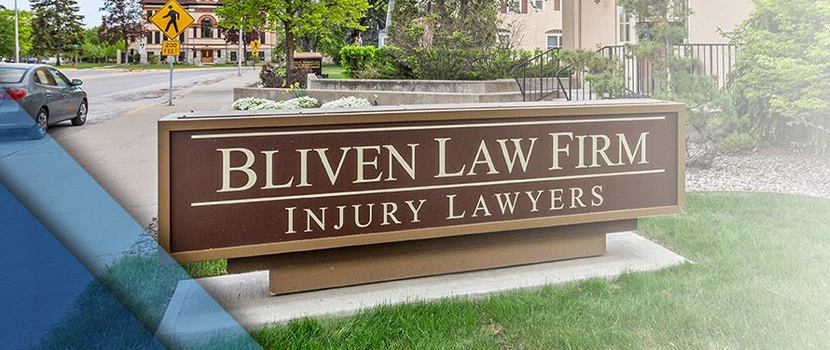How Should Someone Handle Insurance In An Auto Accident Claim?

Those are always concerns and frankly, it depends on the nature of the loss or the injury. However, what injured folks need to know above all else is that their insurance company has a profit motive contrary to their interests and they need to remember that even before they call the insurance company or before they pick up the phone from the insurance company that is insuring the person that hit them. In my own experience, when I talk to the insurance company for the lady that injured me and causes my wreck, my last most significant one when I got hurt badly, I was shocked by how uncaring, unsympathetic and uninterested in the real facts that the claims adjuster, the person who took my statement was.
The insurance company will call the injured person, whether they are in their hospital bed, at home suffering from a concussion on heavy pain medication and seek to take their recorded statement. They do that so they can get the person to say things that they are going to use against them later. The injured person has no idea that the insurance company is really out to get them because the insurance company has shareholders to whom they answer and they have executives, management and supervisors whose compensation is oftentimes geared, driven, determined by how they handle claims and in some fashion or another, most companies, almost all, will reward their claims adjusters and their supervisors based on how little they pay on claims or how much less they pay on claims compared to what the claims are for the losses.
In short, they make more money and they get vacations or whatever incentives the company is using to keep claims cost down and not pay people. That profit motive prevents a lot of claims adjusters from being fair with people and there are claims adjusters and there are insurance companies that do a good job and try to be fair to people. However, even claims adjusters that are good people can work for bad companies and we call it being in the bunker. They may want to pay a claim, they may think somebody has heard or know that they are heard and that they have damages, but their supervisor will not let them pay money or will not let them pay their bills unless they do what they think is right. They will get punished by the company in some fashion or another, most often by them not getting their bonuses.
Contact Us Today Bliven Law Firm, P.C.
Call Us Today:
406-755-6828
The same thing is true of agents. A lot of insurance companies pay their agents based on, in part, how much money they collect in premiums versus how much money those files, claims or policies pay out. In other words, if an agent writes a lot of policies and collects a lot of premiums and then those people do not make claims, then the agent makes more money. They get bonuses based on the profitability of the policies they have written and, as a result, an agent may tell, for example, their customer or their client who they are supposed to represent and help that they do not need to make a Med-Pay claim, they just need to go make a claim against the other insurance company. I have seen that more times than I can count.
So their own company, which they pay a premium so they can have coverage and they paid valuable money for medical payments coverage, their agent or their company will say, “You don’t need to make a claim with us. Go make a claim against the at-fault party. They have to pay all your damages”, which is hopefully true. Hopefully, the at-fault carrier will pay all the damages and they will pay it promptly. However, under Montana and Oregon law, when you pay a premium for coverage, you are entitled to the benefit of your bargain and if you make a medical payments coverage premium payment every month and then you get hurt, then your company is supposed to pay your medical bills and that is their primary source of payment before the primary health insurance kicks in from the other company.
Again, people always need to remember when they are taking a call from the insurance company for the person that hit them that that claim’s adjuster is most likely not particularly interested in helping that individual. What they are interested in, is getting the information, file the claim and then obtaining information that they can use to shut the claim down or control the cost of the claim. Those statements are not designed for most companies to find out what is really going on, they ask questions that they are going to use later against the person, whether it be to question liability, or blame the need for treatment on a preexisting condition, a prior injury or to use the statement against them later if the problems are more severe than anticipated.
When the person calls their own company to report a claim, they have duty to report the claim promptly, they have a duty to let their company know that there is either a claim or that there could be a claim, but certainly that there has been a loss. They have a duty to notify their company. However, even when talking to their own insurance company, they need to know that that information, depending on the circumstances, may be used against them later. If they call their own insurance company to report a loss and it turns out that the cost of the injury, does not have insurance, now their own insurance company is the insurance company they are dealing with and their own insurance company, which has a fiduciary duty to assist their own insured and help them; that is why they paid them money, now suddenly sees their own insured as the enemy.
Somebody who is going to cost them money, affect their profit margin, reduce their bonuses and so on, you would think they are supposed to help you. You think that your own insurance company is going to be fair and when they are not, it can be quite a shock to people. They sometimes will say, “Well, we don’t think that you are still hurt” or “We have decided that this isn’t our responsibility”, then the person is, unfortunately, stuck between a rock and a hard place.
They have given everything to their own insurance company thinking they were there to help them and then they find out sometimes a little too late that their company does not really have their best interest at heart. They have their own profit motives and they should have gotten help from a professional whose goal is to help them. That is one of the beautiful things about our job and one of the things that I truly love about my work, is that I am here to help my clients and fight the insurance companies, whether it be their own health insurance if there is a subrogation claim that they are pursuing that is not appropriate, or their own insurance company that does not want to pay on their uninsured/underinsured motorist claim or the insurance company for the at-fault carrier. The attorney’s job is to represent their client and so we are not motivated by a profit margin.
Our profit motive is the same as our client’s. As a contingency fee lawyer, our compensation is geared toward our client’s success on the claim and so we are down in the trenches with our client and anyone who has been practicing law representing injured people for years will tell you that we as trial lawyers our job is to among other things, when necessary, lay down in front of the train for their client. We are the sheriff, we are the Marshall at the O.K. Corral. We take the risk, we put our time, energy, skill, experience, oftentimes our own money advanced in costs on cases to represent our client and take on Goliath that is our job that is what we do. It is a David vs. Goliath battle; these insurance companies are huge, they have teams of lawyers that they kept well-fed and busy and well-paid.
The injured person is really up against it whether they know it or not and they need help and the attorney’s role, the role of the trial lawyer, in the justice system, is to make sure it works and to help it work. In any given case and in terms of even in protecting consumers at the legislature is critical and this is one of the reasons why when an injured person calls a lawyer. In my opinion they should only call somebody who is dedicated to them, i.e. the injured person who does not do work for insurance companies, who does not do work for corporations, who knows when they get up in the morning that they are going down to represent innocent victims of other people’s negligence and never the insurance companies.
The evil corporation hungry for profits regardless of who gets hurt on the way, because it is a battle and you cannot be on two sides of it in my opinion. The best advocates for victims are those who only advocate for victims in my opinion; that is our philosophy, because if you really care about your clients and you really care about injured people and want justice, then you have to be dedicated to it every day of the week.
Let Our Team Be Your Advocates
If you have been injured by a car wreck or suffered any type of serious injury, call our Kalispell personal injury lawyers at 406-755-6828 or fill out the
no-obligation online case form. We will respond promptly. When you hire our firm you will have the confidence of knowing that assisting you and resolving your
situation and claim is our priority. Contact us for your free case evaluation today.
















